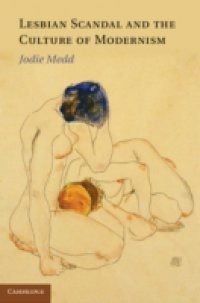Before lesbianism became a specific identity category in the West, its mere suggestion functioned as a powerful source of scandal in early twentieth-century British and Anglo-American culture. Reconsidering notions of the 'invisible' or 'apparitional' lesbian, Jodie Medd argues that lesbianism's representational instability, and the scandals it generated, rendered it an influential force within modern politics, law, art and the literature of modernist writers like James Joyce, Ezra Pound and Virginia Woolf. Medd's analysis draws on legal proceedings and parliamentary debates as well as crises within modern literary production - patronage relations, literary obscenity and cultural authority - to reveal how lesbian suggestion forced modern political, cultural and literary institutions to negotiate their own identities, ideals and limits. Medd's text will be of great interest to scholars and graduate students in gender and women's studies, modernist literary studies and English literature.

